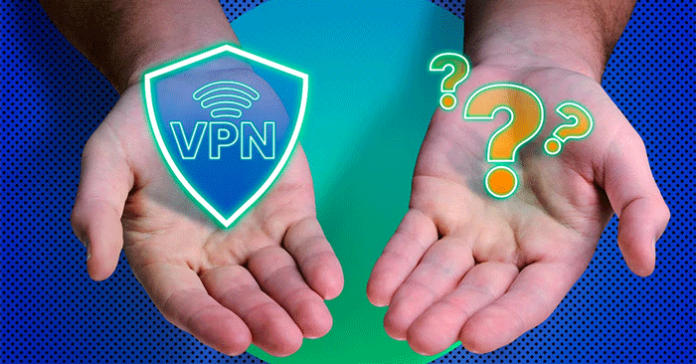VPNs are good for privacy and security, but the most reputable and well-known options don't come cheap. If you can't pay for the best VPNs, there are many free options, but they come with big caveats. However, using a free VPN is better than not using it at all!
1. Free VPN offers encryption for data security
One of the main benefits of using a VPN is that it encrypts your Internet traffic and hides your real IP address, which are the two main things that VPNs hide. Whether using a free or paid VPN, you will enjoy this benefit.
By encrypting Internet traffic, VPNs add a layer of protection that makes it impossible for any prying eyes online to intercept your data, especially on public Wi-Fi.
While a free VPN may not offer the best or most advanced protocols, it does provide enough encryption to protect your data from easy interception by routing it through an encrypted VPN tunnel. chemistry. This extra layer of protection is important for data security and is a big improvement over not using any VPN at all.
2. Provides protection against certain attacks

Second, although there are many reasons not to use free VPNs, they are still better than using nothing, because free VPNs at least provide protection against some types of attacks. determined. By encrypting data during transmission and hiding IP addresses, free VPNs can minimize the risk of specific attacks such as Man-in-the-Middle (abbreviated as MITM) attacks and Wi-Fi eavesdropping .
Both are viable, especially when using public networks. The first method is one of the common methods hackers use to break into your bank account, making the use of a VPN mandatory on public networks. Additionally, changing your real IP address to that of the VPN server makes it harder for hackers to target you.
3. Unlock access to geo-restricted content
Another case where using a free VPN is better is when you want to access content that is not available in your current location. Geo-blocking is a common practice used by content providers to limit access to content only to users in a specific region. One way to bypass geo-location restrictions is to use a VPN. Both the free and paid options can do this, although the paid option is better.
There are other ways to access geo-restricted content without a VPN, but using a VPN is the most accessible option. VPNs do this by hiding your IP address and location, allowing you to access geo-restricted content as if you were in the same location as the VPN server. This is very convenient if you need, for example, to watch YouTube videos that are only available in a certain region, or use services that are only available in certain regions.
Indeed, you won't get the best experience due to limitations like fewer server locations and slower speeds. But it's still better than not using any service, since you won't even have the privilege of viewing geo-restricted content in the first place.
4. Ensure anonymity when surfing the Internet

Like premium VPNs, free VPNs are also built to encrypt Internet traffic and hide IP addresses, ensuring online anonymity. When you connect to a VPN server and access any service, your Internet activity appears to come from the VPN server and not your device.
That way, any website you visit won't be able to know your physical location, thus helping to reduce your digital footprint. Without VPN protection, websites can know your location and easily track your activities. Traffic encryption also ensures your Internet service provider (ISP) cannot see your Internet activity. So, if you value anonymity when surfing the Internet, having a free VPN is better than not using one.
Free VPNs may record user data or track your activity for advertising to offset operating costs. Despite the disadvantages, using a free VPN is better than not using any VPN for the reasons discussed. And due to the risks involved, you should not use any free VPN.


